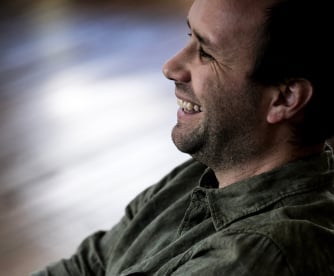This brand-new version of Ibsen’s An Enemy of the People by Melissa Reeves is a comedy with a fierce political heart.
Ibsen wrote Enemy in response to the critical backlash he received for his play Ghosts. His script bristles with his personal outrage. An Enemy of the People is a parable – an allegorical story about truth and power and self-interest.
Our world has changed immeasurably – and in ways particularly relevant to this play – since Ibsen first penned it in 1882 and, for that reason, we’ve brought this adaptation right into the contemporary moment. In 2018, we are more informed as a society than we have ever been. In fact we are practically paralysed with information. Our media cycles are rapid and relentless. The question is not so much will the truth come out – as what will we do about the truth that is already out in the open and known? What will it take to get people to care? And if you do care, then what on earth can you do?
We are supposedly more connected than ever before, we have – in our pockets – the means to communicate with a global audience and yet it seems there is a pervading sense of helplessness.
These are perplexing political times. Self-interest governs the world. Assumptions about moral progress have turned out to be exactly that. We no longer burn witches and our societies are not openly segregated, but conservative forces are finding new ways to cement misogyny and racism under the guise of protecting freedom. The dark and determined impulses we thought we had left behind in the 20th century are still alive and furiously kicking, and the cost of speaking out against them is enormous.
The crisis at the centre of Ibsen’s play – the contaminated water at the local spa resort – could be an allegory for any one of our current human crises: the refugees permanently detained on Nauru, Indigenous deaths in custody, climate change. We all know about all of these things. We’ve seen images, heard the stories, followed the human consequences. Our leaders do nothing but appeal to our most basic selfish instincts. And so we do nothing.
Dr Stockman does something bold. She is naïve perhaps, and vain, but fundamentally she believes in the good of people, in the power of the truth, and she has faith in her society.
Speaking out as she does is daring, at any time – but as a woman, in 2018, speaking out is a dangerous act. When the ‘enemy’ is a woman, the professional response is different, the media’s response is different, the community’s response is different. And the personal costs are different.
Dr Stockman finds herself questioning everything: the society, her family and herself.
In the end Ibsen’s male Dr Stockman finds strength in his isolation, declaring: ‘You see, the point is that the strongest man in the world is he who stands most alone.’
By rewriting Dr Stockman as a woman, Melissa Reeves has added yet another layer to an already deliciously complex narrative of truth-telling. But Reeves has not just re-centred the adaptation around a woman, she’s refocused it around three very specific women from different decades and experiences and classes.
Our Dr Stockman ultimately finds strength in the women around her – in the gathering together and the sharing and the listening.
I believe there is hope in the coming together. There are no simple answers. But there is one thing I am certain about. We need each other. We need to challenge each other and to listen to each other, and to share our stories.
Thank you for being here.




































